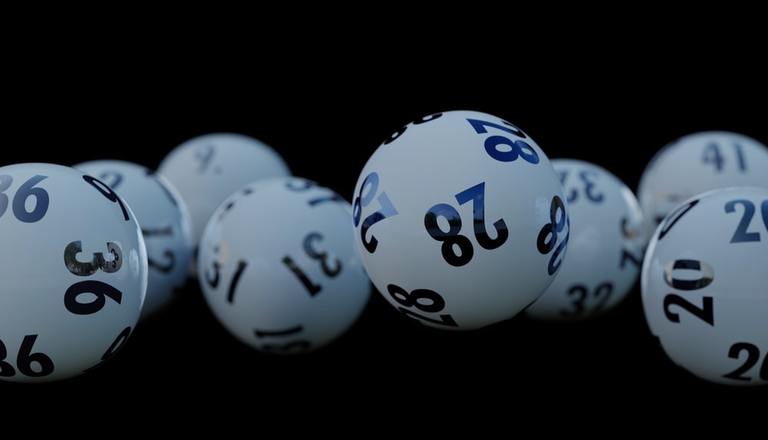
We look at the fairness of the lottery
The question of whether it's fair for a rich person to win the lottery over a poorer person has sparked intense debate. Some argue that the lottery is a game of chance, and everyone should have an equal opportunity to win, regardless of their financial background. Others claim that the lottery is often seen as a way for those in financial hardship to improve their circumstances, and when a rich person wins, it seems unjust. To understand this issue better, let's examine the arguments on both sides.
Arguments Against Rich People Winning the Lottery
• Perceived Unfairness: Many people view the lottery as a way to escape poverty or improve their financial situation. When a rich person wins, it can seem unfair, as they may not need the money as much as someone who is struggling financially. This perception of unfairness can lead to resentment and frustration among those who feel they need the money more.
• Financial Need: Some argue that the lottery should be seen as a form of assistance for those in need. When a rich person wins, it's perceived that they're taking away money that could be better spent helping those who are less fortunate. This argument is based on the idea that the lottery should serve a social purpose, rather than just being a form of entertainment.
• Impact on Society: When a rich person wins the lottery, the money doesn't necessarily get injected into the local economy in the same way it would if a poorer person won. Poorer individuals are more likely to spend their winnings on essential items, such as housing, food, and healthcare, which can have a positive impact on the local economy. Rich people, on the other hand, might invest their winnings in assets that don't necessarily benefit the local community.
Arguments For Rich People Winning the Lottery
• Random Chance: The lottery is a game of chance, and everyone who buys a ticket has an equal opportunity to win. It's not the lottery's responsibility to determine who needs the money more; it's simply a matter of luck. Rich people should be allowed to participate and win if they follow the rules and get lucky.
• Equal Opportunity: The lottery doesn't discriminate based on income or social status. Anyone can buy a ticket and have a chance to win, regardless of their financial situation. This equal opportunity is a fundamental aspect of the lottery, and rich people should be allowed to participate just like anyone else.
• No Strings Attached: When people buy lottery tickets, they're not required to prove financial need or justify their participation. The money they spend on tickets is theirs to use, and if they win, they should be allowed to keep the prize without judgment. There's no moral obligation to use the winnings for the greater good.
The Reality of the Lottery
• Revenue Generation: Lotteries are often used as a way to generate revenue for governments. The money collected from ticket sales is used to fund various public programs, infrastructure projects, and social services. In this sense, the lottery serves a purpose beyond just providing a chance for individuals to win big.
• Player Demographics: Research has shown that poorer individuals tend to spend a larger proportion of their income on lottery tickets compared to richer individuals. This has led some to argue that the lottery is a form of regressive taxation, where those who can least afford it are spending more on tickets.
• The Odds: The odds of winning the lottery are extremely low, and most people who play will not win significant prizes. This means that the majority of players, regardless of their financial situation, will not benefit from playing the lottery.
The question of whether it's fair for a rich person to win the lottery over a poorer person is complex and multifaceted. While some argue that the lottery should serve a social purpose and benefit those in need, others claim that it's simply a game of chance, and everyone should be allowed to participate and win.
Ultimately, the lottery is a form of entertainment that provides a chance for people to dream big and potentially change their lives. While it may seem unfair when a rich person wins, it's essential to recognize that the lottery is a game, and luck plays a significant role in determining the winner.
Rather than focusing on who wins, perhaps the conversation should shift to how the lottery can be structured to benefit society as a whole. This could include allocating a larger proportion of revenue to public programs or implementing measures to protect vulnerable individuals from problem gambling.
In the end, the lottery is a reflection of our societal values, and how we choose to structure and perceive it says a lot about our priorities and compassion. By acknowledging the complexities and nuances of the issue, we can work towards creating a more equitable and beneficial system for everyone involved.
Recommendations for Reform
If we want to ensure that the lottery benefits society more effectively, several reforms could be considered. Governments could allocate a larger proportion of lottery revenue to public programs that benefit low-income individuals and families. This could include funding for education, healthcare, and social services. Governments could implement measures to protect vulnerable individuals from problem gambling, such as setting limits on ticket purchases or providing resources for those struggling with addiction. Lotteries could increase transparency and accountability by providing clear information on how revenue is allocated and how winners are determined. Lotteries could promote responsible gaming practices by encouraging players to set budgets and understand the odds of winning.
By implementing these reforms, we can work towards creating a more equitable and beneficial lottery system that benefits society as a whole.
